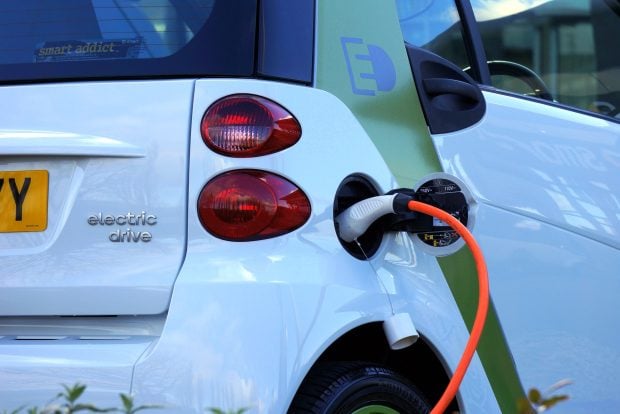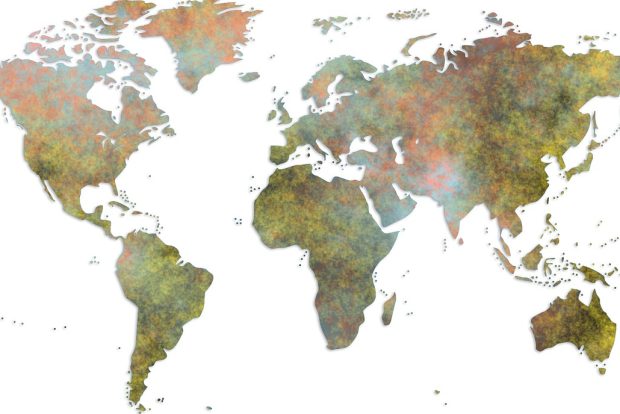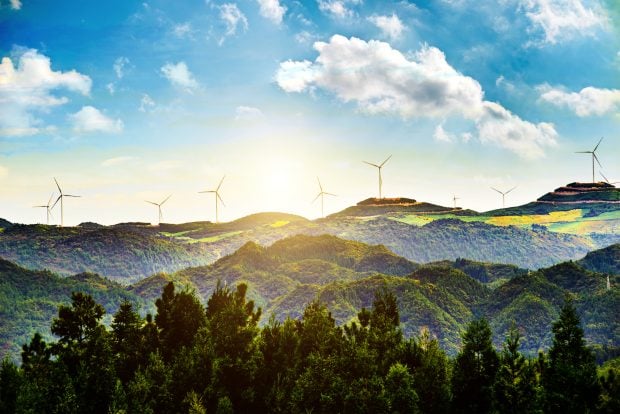Global temperatures set to breach 1.5°C threshold over next five years, UN says

There is a 70% chance that the 5-year average warming for 2025-2029 will exceed the 1.5°C global warming limit set under the Paris Agreement, according to the World Meteorological Organization (WMO).
This likelihood has increased from 47% in the WMO’s 2024 report (covering 2024-2028) and from 32% in the 2023 report (covering 2023-2027).
The WMO – which is the UN’s weather and climate agency – also predicted in its latest annual climate update, released last week, that there is an 86% chance that temperatures in at least one of the next five years will exceed 1.5°C, and that at least one of the next five years will be the warmest on record.
Countries that signed up to the Paris Agreement at COP21 in 2015 pledged to keep the global average temperature to well below 2°C above pre-industrial levels, and to pursue efforts to limit the temperature increase to 1.5°C above pre-industrial levels.
The WMO warned that every additional fraction of a degree of warming drives more harmful heatwaves, extreme rainfall events, intense droughts, melting of ice sheets, sea ice, and glaciers, heating of the ocean, and rising sea levels.
“We have just experienced the ten warmest years on record. Unfortunately, this WMO report provides no sign of respite over the coming years, and this means that there will be a growing negative impact on our economies, our daily lives, our ecosystems and our planet,” said Ko Barrett, WMO deputy secretary-general.
“Continued climate monitoring and prediction is essential to provide decision-makers with science-based tools and information to help us adapt.”
Read more: World breaches 1.5C warming limit as climate deadline looms for governments
A look ahead to COP30 – and China steps up
Representatives at COP30, taking place in Belém, Brazil, in November, will consider updated climate action plans known as Nationally Determined Contributions which are crucial for achieving the Paris Agreement goals.
NDCs will need to be more ambitious if implementation is to be accelerated.
A study by the World Resources Institute published in April said that Paris Agreement goals were out of reach unless top emitters step up.
The study focused on six of the world’s top emitters – China, the US, India, the European Union, Brazil, and Indonesia, which together emit more than half of the world’s greenhouse gases each year – and assessed how ambitious their mitigation targets are.
It found that all six countries’ NDCs “fall well short of what’s needed to keep the 1.5C limit within reach”, and that some targets will not enable countries to meet their own net zero pledges.
Since then, China’s president Xi Jinping has committed the country – which is world’s biggest polluter – to producing a comprehensive emissions reduction plan. He said China would set new goals to cut emissions by 2035 “covering the entire economy, including all greenhouse gases” ahead of the COP30 summit.
The announcement was seen as a major signal of intent and a boost for the climate community, given that China’s current target for 2030 – included in its latest NDC released four years ago – only covers carbon dioxide emitted by the energy sector.
Read more: Paris Agreement goals out of reach unless top emitters step up, study warns
COP lacks strength to drive change, leaders warn
However, there remains concern that collective efforts will fall far short of what is needed if climate change is to be limited.
Increasing numbers of world leaders, leading climate scientists and the COP30 president himself have said that COP – which has led global climate efforts for decades – no longer has the strength or mandate to drive the progress required, and have called for stronger climate governance mechanisms.
Last month, COP30 president André Aranha Corrêa do Lago described efforts to curb global warming as “fragmented” and said “it is high time we started reflecting on how to strengthen global governance to exponentially accelerate implementation [of the Paris Agreement]”.
He appealed to the international community to investigate how climate cooperation could be better equipped to drive change.
His comments follow those made by Brazilian president Luiz Inácio Lula da Silva during last year’s G20 meeting, in which he said there was “no point” in negotiating new commitments without an effective mechanism to accelerate implementation.
Read more: COP30 president calls for new governance mechanisms in climate change fight
Need for ‘fast, decisive action’
Former UK prime minister Tony Blair also lent his voice to the argument, writing in a report last month by the Tony Blair Institute for Global Change, which he founded, that current climate policy is “doomed to fail” and that many leaders know the current approach isn’t working but fear saying “what they know to be true”.
“We need international cooperation far beyond the current frameworks and a collective commitment to fast decisive action, especially from the leaders of major emitting economies,” the report stated.
“Continuing on the same path and relying on outdated, ineffective policies will not cut emissions fast enough. Doing so is a recipe for global disorder driven by the catastrophic impacts of climate change.
“It’s time to redefine climate leadership and move into an age of delivery – an era of bold action, technological breakthroughs and transformative shifts in policy.”
Last week, the World Weather Attribution, Climate Central and the Red Cross Climate Centre published research ahead of Heat Action Day on 2 June, which found that four billion people endured an extra month of extreme heat last year due to climate change.
Read more: Current climate policy ‘doomed to fail’, says former UK PM Tony Blair























